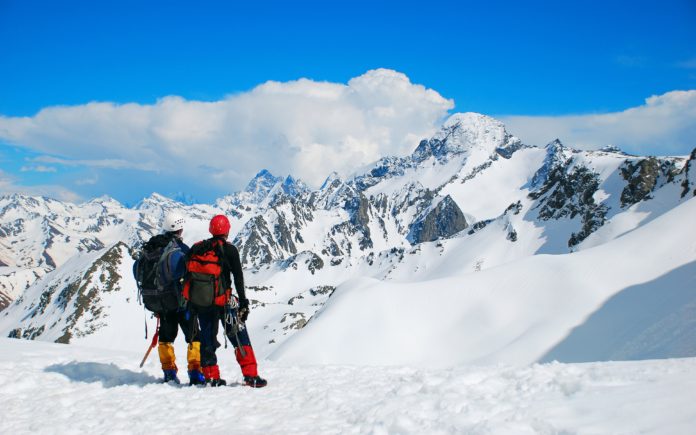For the more adventurous sort of person, there is nothing quite as challenging as conquering a mountain. Other sports could provide the rush, sure. Bungee jumping or skiing are the first things that come to mind but then challenge is different for everyone. The thing with challenge though is that past a certain point it becomes a negative thing to pursue. The many accidents that we have heard about are proof of this for one.
Here’s a little background on high-altitude accidents
It is hard to tell when high-altitude accidents became global news. Here are just a few examples that caught the media’s eye.
In one small town in Nepal, a young couple decided that for their holiday adventure, they were going to climb a mountain. After some hiccups during the initial part of the journey, the couple set off on their journey. The two were both students at a local Indian University. For the first few days, there was no cause for concern. After all, the four parents in question all knew that their children had gone on a hike. When the two did not call home, however, the people at home got worried and called the local authorities.
A search team was deployed and found the pair a month and a half into their ‘adventure.’ The girl, a nineteen-year-old, was found dead while her twenty-year-old counterpart was malnourished but alive. The girl’s boyfriend explained to authorities that they had been walking towards shelter in harsh weather when they had fallen into a canyon and had been unable to get out.
Lack of food and the cold had led to the death of the girl, the local doctors reported.
More recently another mountain climber set out to break the world record by being the oldest man to have ever climbed the Everest. Eighty-five-year-old Min Bahadur Sherchan had not climbed many mountains in his lifetime and did not make it back down the Everest. He started on his journey up the Everest well enough, but a few days into it, died. The media did not immediately release the cause of death for Sherchan but the most likely culprit is the cold associated with climbing the highest mountain on Earth. Then again, Serchan was also old so age could have played a part in it.
These are just a few of the incidences that have happened in the last month or so. The number of altitude-related deaths is increasing, and somebody needs to do something about them. The first step would be to look at why these deaths happened in the first place.
The Motivations
Why do you go on holiday? The answer to that will have something to do with getting away from work, resting or just enjoying yourself. If anyone were to give you one day to go wherever you want, where would you go? For most people, the answers would range from tropical beaches to historical towns to places that they have always been curious about. For others, it will be mountains.
Personal preferences dictate almost everything we do, including the activities we take part in. So, what would motivate an individual to decide to take up mountain-climbing? There is no one correct answer for that.
The couple that was trapped in the Himalayas wanted to go up the mountains just for the fun of it. They wanted to climb mountains the same way some people want to shop for pleasure or others want to play golf or go around looking at everything on display in a museum or a gallery. The trip just turned out to be a little different than they first thought it would.
The motivation in the second case was a little more direct. … must have been a very competitive man to want to break a world record at his age, and he understood the risks. Mount Everest, after all, is a feature that has claimed the lives of many people who had tried conquering it. Sherchan risked his life climbing a mountain for glory and he walked into the situation with his eyes open.
Adventure and glory are two motivations for mountain climbing. Another reason could be for exercise. Professional mountain climbers, however, stick to the warmer mountains for the exercise. Some don not even go as far as mountains; they just climb rocks instead.
Can anything be done about these deaths?
Legislation could be the last resort to reducing this kind of deaths. You cannot arrest someone for wanting to go up a mountain after all. However, these few pointers might help.
Any person who is new at mountain-climbing should go up with a guide. Guides are typically locals so they will know all the tricky spots to avoid during a climb. The downside to this is that guides may not be available where you’re going. There is also the fact that guides can strain a person’s budget as well as the risk that both of you could be involved in the accident. But hey, at least it is worth a try.
Secondly, areas that have a lot of tourists coming in should invest in a few rescue operation equipment. Again, this is costly but it may end up saving many lives. Rescue team support material can be anything from volunteers to aircraft. One of the main causes at when you are lost at high altitude is not necessarily the fall but the lack of food and water, and this death can be prevented by having faster rescue operations.
Another option would be to set an age limit for climbing.
Finally, if you are going on a mountain trip, take care of yourself as well. They’ll be no one to rescue of you do not get hurt or trapped. Wear proper clothes, stock up on food and supplies, carry a map, hire a guide; make sure you have everything you need when you’re going into the wild. These are mundane tasks but they count for a lot once you’re high up on the mountains.




